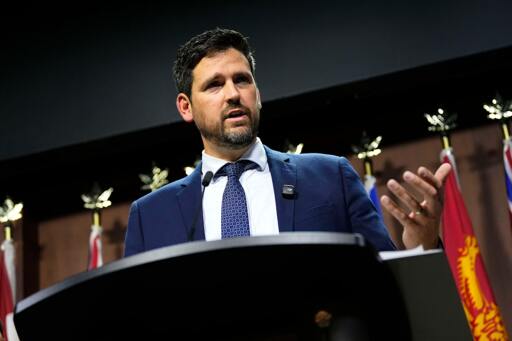While government censorship is dangerous, the article is picking some really disingenuous examples:
Another provision would make it illegal (as a government backgrounder puts it) to “willfully promote hatred against an identifiable group by publicly displaying certain terrorism or hate symbols.” It specifies the Nazi swastika, the SS insignia and the symbols of designated terrorist groups. What that means is that someone could be arrested in Canada simply for waving a flag, a bad idea no matter how odious the idea it represents.
If you’re waving a Nazi flag, you’re not “just waving a flag.” They could have gone with “you could get charged for protesting a genocide” but decided to go with “I won’t be able to show my approval of fascism.” ಠ_ಠ
Well, I mean, the states is pretty close at this point to declaring things like the pride flag as hate symbols. Heck, our own Canadian government is already incredibly wishy washy on the Palestinian flag. A law that says it’s illegal / jailable to wave a flag with symbols the government doesn’t approve of, is dangerous – especially when you view the current conflict not as a left vs right thing, but rather as an authoritarian vs individualism/egalitarianism thing.
Something like Carney’s “national projects” bills, which allow the govt to ignore various rights claims / environmental issues – lots of liberals justify it by giving Carney the benefit of the doubt. But that legislation isn’t set to expire / be reviewed until sometime midway through the next govts term. Will those people who supported Carney still think it’s so great if those powers end up in the hands of PP’s Trump-style conservatives? Or have the liberals intentionally tried to set it up as a gift to the conservatives, so that the liberals can then run a “shock and dismay!” campaign for the next cycle, a game of political shenanigans that treats Canadian’s rights like a game piece? Who knows.
We’re seeing a very clear example of the government redefining what’s “hate speech” south of the border currently. It’d be silly not to learn from the US’s folly.
Legislation brought in by the current liberal government, while appealing to some liberal supporters, would likely make them scream if the powers were instead given to the conservatives. But the bigger problem in some ways is that both of those parties are aiming for increasingly authoritarian approaches.
That’s why I drew the distinction between banning things the government doesn’t approve of and banning Nazi symbolism. The former is a risk to freedom of expression, but the latter is just hate speech, and south of the border (heck, even here with the KKKonvoy) is a perfect example of where the line should have been drawn w.r.t. that.
And just to be clear, I’m not defending the bill - I’ll criticising the examples that the article used.
I don’t agree with attempting to rationalize bad legislation, even if the specific example used by the journalist / source is a bit weak or unclear.
Your bringing in the “KKKonvoy” is a good example of why. I don’t think it’s accurate to draw a parallel between everyone who supported that, and white supremacy. Similarly, I don’t think anyone with a Palestinian flag is a Hammas supporter – but there are many who do, likely enough that the cons would add it to the list. Allowing government / media to dictate what symbols are good/bad, is authoritarian.
In regards to the example used specifically though, there’s a reason for it I reckon. Legislation is often written with different intentions / examples and attempts by politicians to clarify what they mean – which’s likely why they’re using the nazi examples as part of it. The source is noting that it’s how it’s written now but that it can change based on the discretion of various groups. Ie. They hold up a sign saying “We’re against Nazis!” to make people ok with the authoritarian push; later that legislation can be changed to “women’s rights activists are femi-Nazis! Add em to the list!”. And while that may sound ‘crazy’, again, we have a literal contemporary example to the south.
Even more, you’re focusing on an example fairly late in an article cautioning about authoritarian creep, but the subject of that example is fairly tertiary to the point of the article.
It all comes down to what they define as hate or terrorism.
In fact, this is the worst time for such measures. Democracy is under attack around the world. The right to speak is democracy’s foundation stone. Using the law to curb expression, even of the most extreme kind, is always a mistake, and it is especially dangerous now. Just look at what is happening south of the border.
You could very easily conclude what happened in the US was because they never stopped hate speech from Churches, AlexJones, Charlie Kirk etc…
There is no clear right or wrong. Censorship is a tool. It’s danger is in how and who wields it. No censorship just allows hate to flow unimpeded which can be just as dangerous as censorship.
If done properly, I don’t disagree with what’s being done…
But I’m still wary
deleted by creator
The archive link is right there



